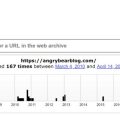An office manager plays a pivotal role in orchestrating daily operations, fostering seamless communication, and boosting overall productivity within the workplace. The significance of this role cannot be overstated, as it serves as the backbone of any well-functioning office.
Before you proceed to hire an office manager, consider the multifaceted responsibilities of an office manager, how to craft the perfect office manager job description, and our tips for conducting an effective interview.
The Office Manager Role
The role of an office manager is complex and involves a wide range of responsibilities. From overseeing administrative tasks to ensuring that the office runs smoothly, the office manager duties are a linchpin in any organization.
A few of the office managers primary responsibilities include:
Managing Office Supplies: A well-stocked office is a productive one. The office manager ensures that all essential supplies are available and reorders items as needed.
Facilitating Clear Communication: Effective communication is crucial in any workplace. The office manager acts as a liaison between various departments, ensuring that messages are conveyed accurately and promptly.
Utilizing Social Media for Administrative Tasks: In today’s digital age, an office manager can leverage social media platforms for tasks such as event announcements and internal communications.
Employee Onboarding: A smooth onboarding process sets the tone for a positive work experience. Here’s how to onboard new employees. The office manager often oversees this process, ensuring that new hires have all the tools they need to succeed.
Financial Oversight: Budgeting and expense tracking often fall under the purview of the office manager, who ensures that the office operates within its financial means.
Crafting the Perfect Office Manager Job Description
Creating an effective office manager job description is the first step in attracting the right candidates. If you’re looking to hire a medical office manager, the job description may differ slightly in terms of qualifications and responsibilities.
The office manager job description should outline not only the hard skills required, such as proficiency in office software and experience in managing staff, but also the soft skills that are often just as important. These may include strong communication skills and the ability to multitask effectively.
Candidates should possess a balanced skill set. While technical abilities are important, soft skills like emotional intelligence and adaptability are equally crucial. In the process, aim to reduce hiring bias.
This balance ensures that the office manager can not only perform tasks efficiently but also foster a positive work environment.
Skills and Experience in Office Management
The right blend of skills and experience can elevate an office manager from good to great. A seasoned office manager often brings a wealth of knowledge and best practices that can streamline operations, enhance workplace culture, and reduce operational costs.
On the other hand, a novice may lack the insights to identify inefficiencies or may not have the skills to manage a diverse team effectively.
| Office Manager Skills or Experience | Brief Description | Why It’s Important |
|---|---|---|
| Communication Skills | Ability to convey ideas and resolve conflicts | Ensures clear understanding and harmony |
| Organizational Abilities | Skill in multitasking and detail management | Keeps the office running smoothly |
| Leadership Qualities | Capacity to motivate and delegate | Creates a positive and productive work environment |
| Financial Acumen | Understanding of budgeting and expenses | Helps the office operate within budget |
| Technical Proficiency | Knowledge of office software and troubleshooting | Solves minor tech issues, enhances efficiency |
When seeking your next hire, look for the following office manager experience and skills:
- Communication Skills: Effective communication is the cornerstone of any well-run office. An office manager with strong communication skills can convey ideas clearly, resolve conflicts, and ensure that everyone is on the same page.
- Organizational Abilities: A well-organized office manager can juggle multiple tasks without losing sight of the details. This skill is essential for keeping the office running smoothly and meeting deadlines.
- Leadership Qualities: An office manager often oversees a team, making leadership skills crucial. A good leader can motivate the team, delegate tasks effectively, and create a positive work environment.
- Financial Acumen: Budgeting and expense tracking often fall under the office manager’s responsibilities. A strong understanding of financial principles can help the office operate within its means and even save money.
- Technical Proficiency: In today’s digital age, a working knowledge of office software and basic tech troubleshooting is invaluable. An office manager with these skills can solve minor technical issues and make more efficient use of software tools.
By focusing on these key skills during the hiring process, employers can increase the likelihood of finding an office manager who will be a true asset to the organization.
Where to Find the Best Office Managers
Finding the ideal candidate for your office manager position involves more than just posting a job ad and waiting for applications to roll in.
Top job platforms like LinkedIn, Indeed, and Glassdoor are excellent starting points but don’t overlook unusual ways to promote a job opening. Recommendations from industry peers can often lead to high-quality candidates. Social media platforms, particularly LinkedIn, can also be valuable resources.
When evaluating potential candidates and considering whether you should I hire a family member, look beyond the resume. Consider their interview rejection letter and other factors that can provide a comprehensive view of their suitability for the job.
Assess their digital footprint, scrutinize their LinkedIn recommendations, and consider any endorsements they may have. Experience in office administration is crucial, but also pay attention to any additional qualifications or certifications that could benefit your organization. By taking a comprehensive approach to hiring, you increase the likelihood of finding an office manager who will be a true asset to your company.
How to Hire an Office Manager: Step by Step
The process of hiring an office manager requires careful planning and execution. A structured approach can help you identify the best candidate who will contribute positively to your organization’s success.
Creating Impactful Job Postings to Attract the Best Office Managers
A well-crafted job posting can be a magnet for high-quality candidates. Clear, concise language in the job description can help applicants understand the role’s requirements and responsibilities.
Equally important is showcasing your company culture. Use language that reflects your organization’s values and work environment to attract candidates who will be a good fit.
Screening and Interviewing: Identifying Top Office Administrator Candidates
The screening phase is crucial in narrowing down your list of potential hires. Well-designed interview questions can provide valuable insights into a candidate’s communication skills and experience.
Questions like, “Can you describe a time when you had to resolve a conflict between departments?” or “How do you prioritize tasks during a busy workday?” can be revealing. Be cautious of red flags such as vague answers or a lack of enthusiasm for the role.
Considering Other Factors When Evaluating Office Manager Candidates
Verifying past managerial experience and checking references are essential steps in the hiring process. These actions provide an additional layer of assurance that the candidate has the skills and temperament for the role.
Equally important is assessing a candidate’s alignment with your company’s culture and values. A candidate who shares your organizational ethos is more likely to contribute positively to the workplace.
Onboarding and Training: Preparing The New Office Manager for Success
Once you’ve selected your new office manager, the onboarding process becomes the next critical phase. Proper orientation to company protocols, software tools, and key personnel can set the stage for a successful tenure. Having a well-crafted training plan template can be invaluable.
Training sessions that cover specific job responsibilities as well as broader company policies can help the new office manager integrate smoothly into your business. Providing a mentor or a go-to person for questions can also be a valuable resource for a new hire.
FAQs: How to Hire an Office Manager
What’s the Difference Between an Office Manager and Office Administrator?
An office manager and an office administrator both play key roles in office operations, but their responsibilities often differ.
An office manager typically oversees a broader range of tasks, including staff management, budgeting, and strategic planning.
An office administrator, on the other hand, usually focuses on day-to-day administrative tasks such as data entry, scheduling, and basic HR duties.
The office manager often supervises the office administrator.
Should an Office Manager Have Experience in a Similar Industry?
While industry-specific experience can be beneficial, it’s not always a requirement for an office manager role.
The core skills of office management, such as organization, communication, and leadership, are often transferable across different industries.
However, some businesses may prefer candidates with experience in their particular sector to navigate industry-specific challenges more effectively.
How Do Office Managers Manage Office Supplies?
Office managers are responsible for ensuring that the office is well-stocked with essential supplies.
They often maintain an inventory list, monitor usage rates, and reorder supplies before they run out. Some use specialized inventory management software to track supply levels.
Their goal is to ensure that employees have the tools they need to perform their jobs efficiently, without incurring unnecessary costs.
Image: Envato Elements












